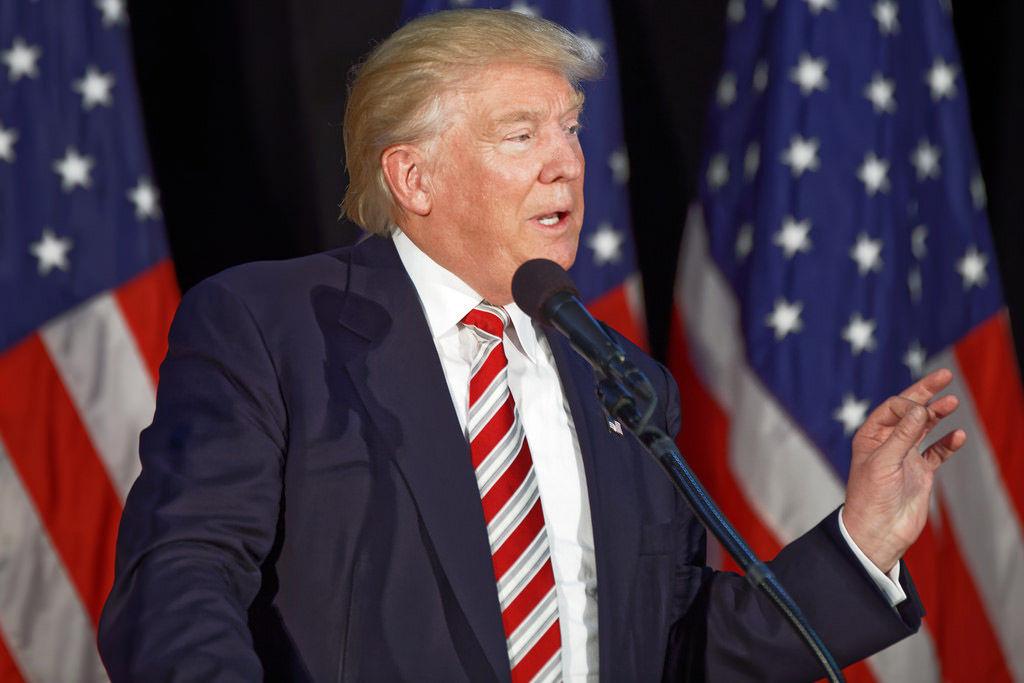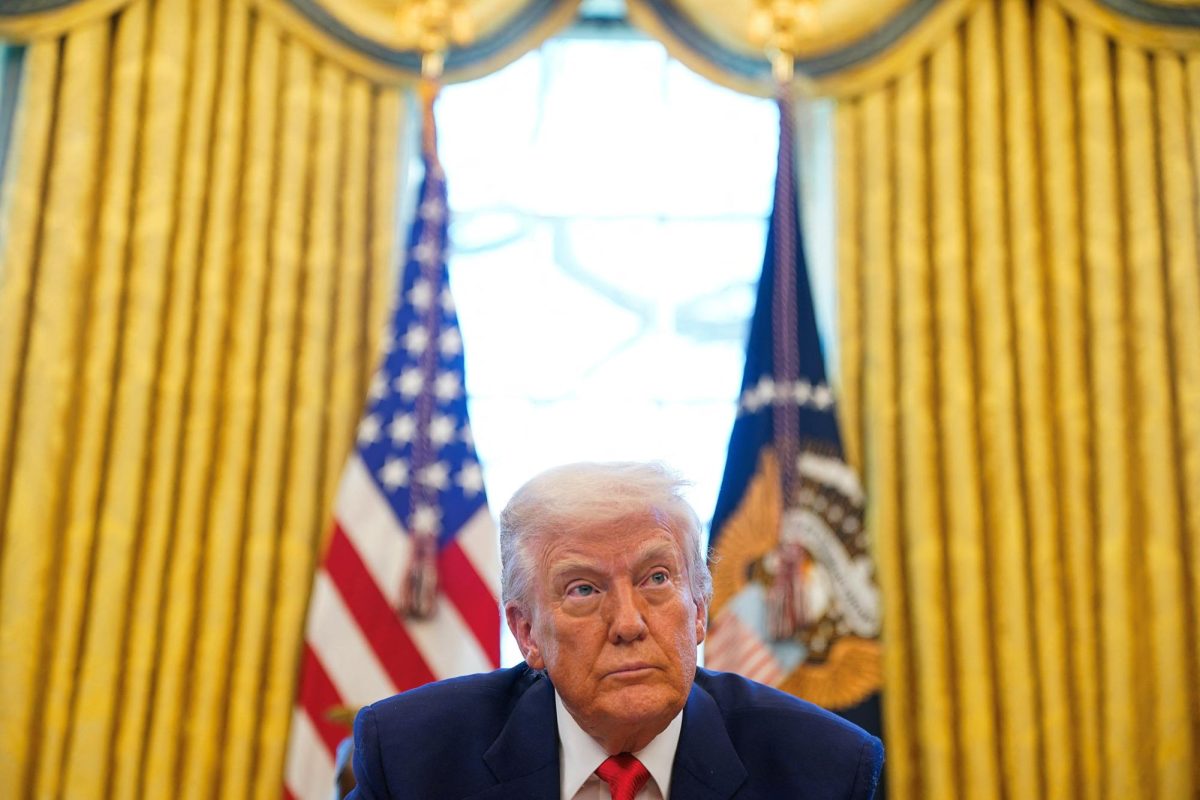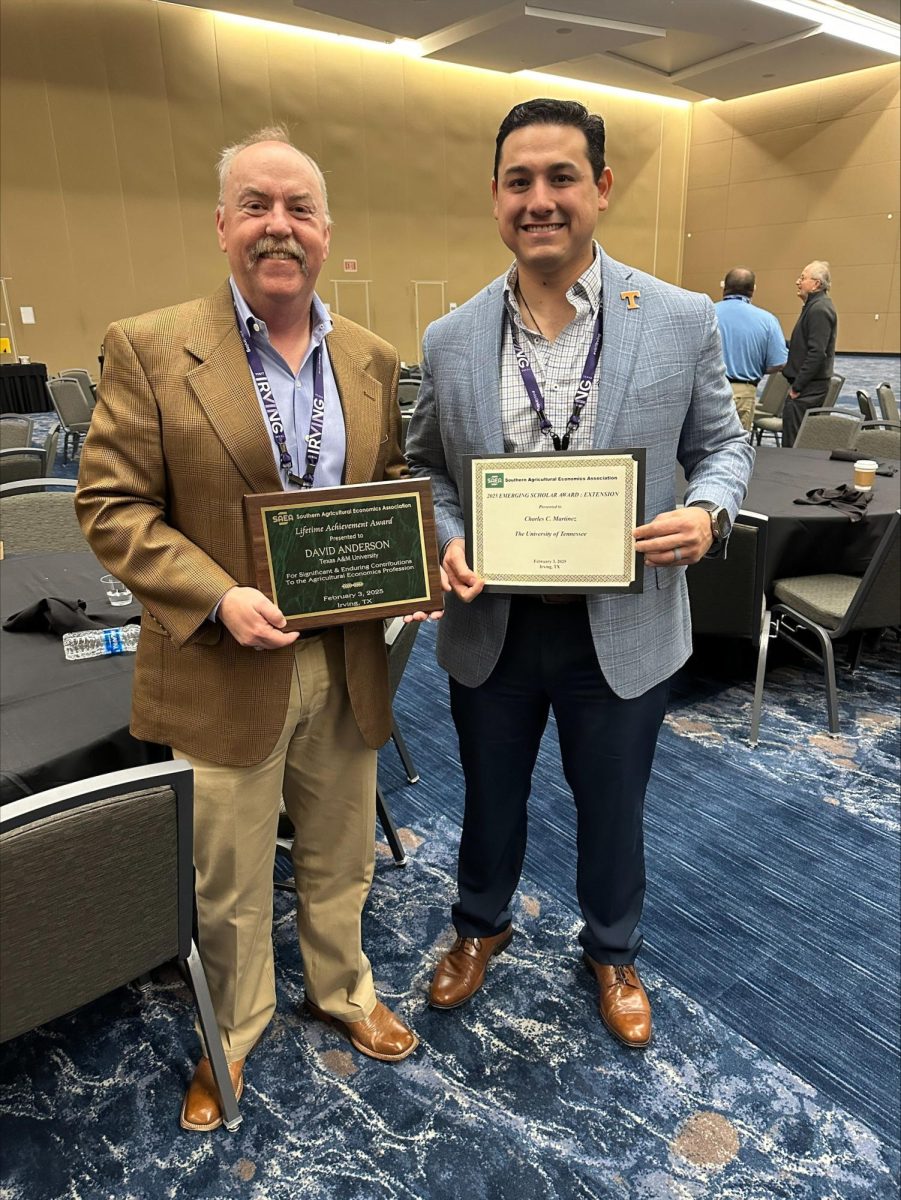It has been exactly one year since President Donald Trump won the 2016 presidential election against Hillary Clinton. Over the course of the year, several national events have impacted students, staff and faculty at Texas A&M.
Tax Code
No current legislation has been implemented for tax reform, but the White House has created a campaign that lists ideas such as permanently reducing tax rates, giving American business the competitive edge, eliminating loopholes and reducing paperwork to one page and bring back trillions in wealth parked overseas.
Travel Ban
On Jan. 27, an executive order from President Trump suspended U.S. entry for 90 days by seven countries: Iran, Iraq, Libya, Somalia, Sudan, Syria and Yemen. It also suspended the USARP. Supplemental executive orders were released following the suspension throughout the year.
In one of those supplemental executive orders on March 6, President Trump inserted a specific provision that intended to clarify his previous order in January. The executive order from the White House states the following:
“Executive Order 13769 did not provide a basis for discriminating for or against members of any particular religion. While that order allowed for prioritization of refugee claims from members of persecuted religious minority groups, that priority applied to refugees from every nation, including those in which Islam is a minority religion, and it applied to minority sects within a religion.”
Law Enforcement Relations
According to the White House blog, three Executive Orders were signed on Feb. 3 by President Trump that support federal, local and tribal law enforcement and was intended to fight crime, drugs and gangs.
The blog summarizes the first order to a financial support to officers on the street and a promise of an aggressive prosecution to anyone who attempts to harm them. It summarizes the second order as an instruction to the Attorney General to assess crime and create an increase in public safety. Finally, it summarizes the creation of a task force by the Attorney General specifically to destroy transnational crime and drug cartels.
Additionally, the White House blog mentions the most important way to fight crime in the United States is to stand behind officers in the front lines.
“In the last year there has been violence and threats against law enforcement officials. These attacks on police are attacks on all Americans,” the White House wrote.
Transgender Service Ban
Before June 2016, transgender individuals were not allowed to serve in the U.S. military. In July of 2016, the Obama administration began to allow individuals to serve openly and provided financial assistance by the Department of Defense and the Department of Homeland Security. Individuals utilized these resources to take the necessary steps to fully transition. President Trump said in a memorandum on August 25, 2017 in alignment with his promise to strengthen the military that he disagreed with the previous administration’s policy.
“In my judgment, the previous Administration failed to identify a sufficient basis to conclude that terminating the Departments’ longstanding policy and practice would not hinder military effectiveness and lethality, disrupt unit cohesion, or tax military resources, and there remain meaningful concerns that further study is needed to ensure that continued implementation of last year’s policy change would not have those negative effects,” Trump said.
In this memorandum, President Trump ordered an immediate return to the previous policy for transgender individuals serving in the military and a halt on any funds for individuals to receive reassignment treatment, except for those of whom the halt would negatively affect the health because of ongoing reassignment treatment.
Cuba Policy
According to a summary of the Trump administration policy with Cuba dated on June 16, the main ideas of the policy are enhanced travel restrictions, a break in economic ties with the Grupo de Administración Empresarial (the Cuban military monopoly), an improvement of Cuba-U.S. relations only with the improvement of lives of the Cuban people and more.
Also on June 16, at the Manuel Artime Theater in Miami Florida President Trump said, “Any changes to the relationship between the United States and Cuba will depend on real progress toward these and the other goals, many of which I’ve described. When Cuba is ready to take concrete steps to these ends, we will be ready, willing and able to come to the table to negotiate that much better deal for Cubans, for Americans.”
Deferred Action of Childhood Arrivals (DACA)
On Sept. 5 President Trump announced the end of the Deferred Action of Childhood Arrivals, or DACA. The program was put in place by the Obama administration “for individuals whose cases are deferred will not be removed for a two year period, subject to renewal and may also receive employment authorization.” Because the expiration for renewals for dreamers happened during President Trump’s end of DACA, several individuals are left to a possible fate of being deported.
On Sep. 5 Trump tweeted “Congress now has 6 months to legalize DACA (something the Obama Administration was unable to do). If they can’t, I will revisit this issue!”
During the rise of the national response to DACA, Trump continued to tweet and comment on the issue. At time of print, there has been no official deadline for the assessment and solution implementation for DACA.
Hurricane and Disaster Relief
During hurricane season, Hurricanes Harvey, Irma, Jose and Maria caused catastrophes in several parts of the United States. President Trump signed a bill on Sep. 12 that provided additional funds to help citizens, local and national governments to rebuild and provide relief.
President Trump also interacted with the local leaders of the regions to assess issues and understand the local morale.
According to the Federal Emergency Management Agency website, FEMA is currently addressing issues in the areas that have been affected by hurricanes and wildfires by providing home inspections, medical care, meals and more.
Health Care
In his concern for a financial burden of and a lack of choice in health care, President Trump signed an executive order that sought to allow agency heads to waive or defer provisions that instill what the administration believe are financial burdens.
The overall objective for the GOP has been to repeal and replace the Patient Protection and Affordable Care Act. Several attempts by Congress have been made to pass legislation that would replace and repeal the ACA, including The American Health Care Act by the House of Representatives the past year and the Better Care Reconciliation Act of the Senate. In an executive session on Sep. 18, Senator Lamar Alexander and Senator Patty Murray were claimed to be working in a bipartisan effort to change ACA, according to the Library of Congress.
Information is compiled from the White House and Library of Congress websites.
President Trump: A year in review
November 8, 2017
Photo by Creative Commons
One year after the 2016 presidential election, look back at Trump’s most influential acts in office.
0
Donate to The Battalion
$2790
$5000
Contributed
Our Goal
Your donation will support the student journalists of Texas A&M University - College Station. Your contribution will allow us to purchase equipment and cover our annual website hosting costs, in addition to paying freelance staffers for their work, travel costs for coverage and more!
More to Discover










